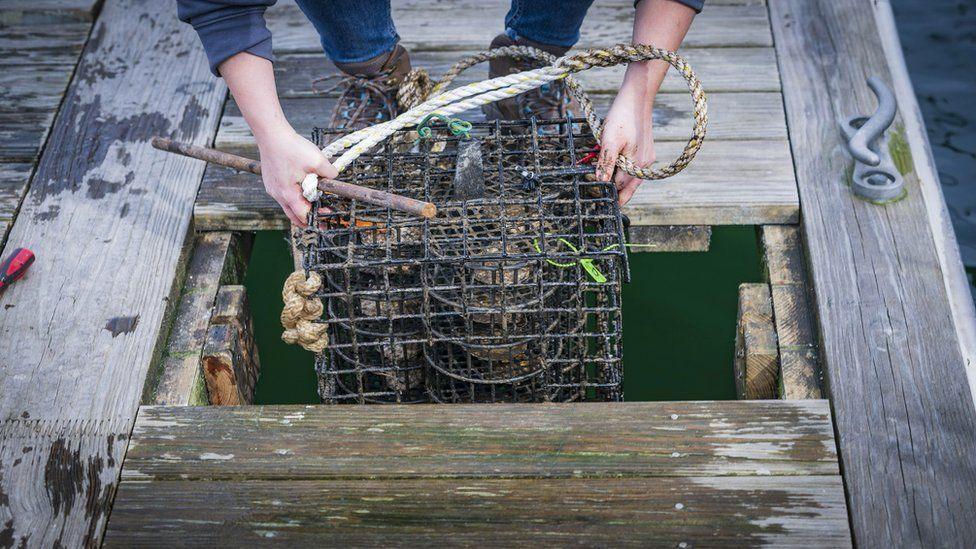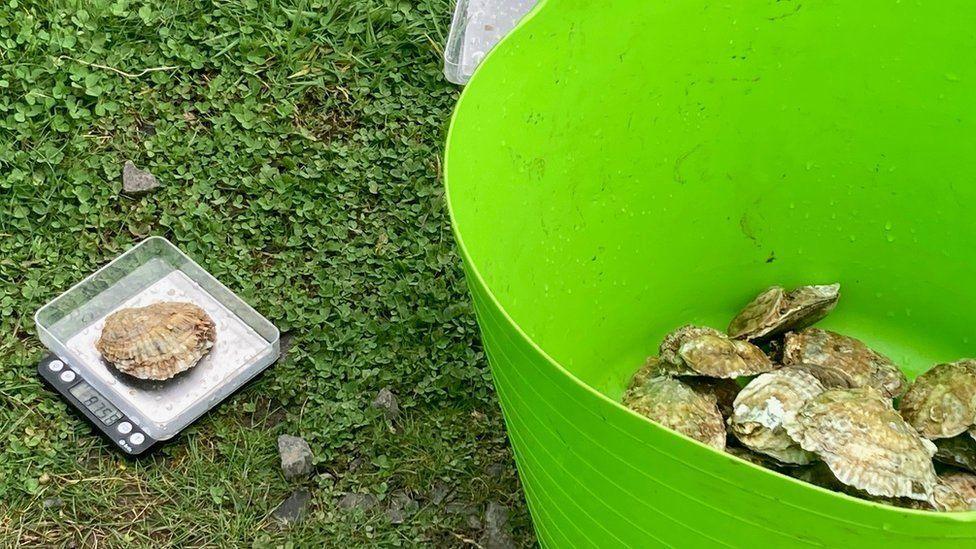Lough Foyle native oyster fishing ban extended

The ban was due to end on 29 February
- Published
A ban on native oyster fishing in Lough Foyle is being extended as concerns continue over conservation.
The ban, introduced in October to preserve stocks, was due to end on 29 February.
However, the Loughs Agency said a decision to extend the ban until 31 March would ensure the preservation of oyster stock.
Sharon McMahon, CEO of the Loughs Agency, said extending the ban would “help maintain a sustainable fishery for the future”.

Native oysters are one of the most imperilled habitats on Earth
She said following an assessment of stock in the Foyle over recent months, the agency had determined that the extended closure was “an essential course of action to ensure the continued conservation of oyster stocks”.
“It is not a decision we have taken lightly,” she said.
“We are fully aware of the impact that this will have on our native oyster fishery stakeholders in relation to the fishing of oysters in Lough Foyle."
Natives are a variety of flat oyster and Lough Foyle is home to one of the last large populations.
The local native oyster season normally runs from September to April.
Oyster project seen as win-win for nature
- Published24 May 2023
What lives in the River Foyle?
- Published21 May 2018
Ms McMahon said the extension was backed by scientific data and was an “informed management decision”.
Native oyster reefs were once abundant in European seas but it is estimated that populations have declined by 95% since the 19th century.
Now native oyster reefs are one of the most threatened habitats in Europe.
One of the main causes of this huge decline is historic overfishing, but habitat loss, disease, pollution and invasive non-native species are all contributors.
The lough straddles Northern Ireland and the Republic of Ireland, from Greencastle Fort in County Donegal to Magilligan, County Londonderry.
The Loughs Agency is part of the Foyle, Carlingford and Irish Lights Commission (FCILC).
It was set up as one of the cross-border bodies under the 1998 Good Friday Agreement between the UK and Irish governments.